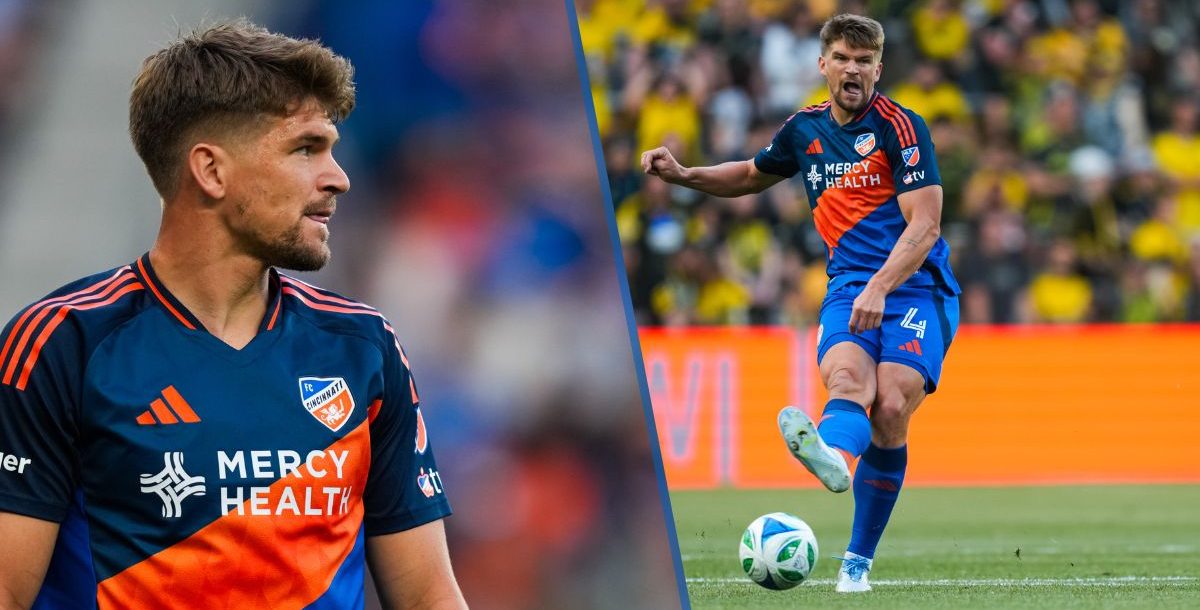The following is a piece written by Nick Hagglund, a defender for FC Cincinnati. Mercy Health is the official health care provider of FC Cincinnati.
This is Nick Hagglund from FC Cincinnati, and I want to take some time to write about something that’s just as important to me as physical fitness, tactical awareness and teamwork: mental health.
While most of my time is spent training, traveling and competing, I’ve come to realize that none of it works unless I’m mentally well. Mental clarity and emotional balance are what allow me to be a better player, a better teammate and a better person off the pitch.
When people think of professional athletes, they often picture strength, speed and confidence. But what they don’t always see is the pressure. The self-doubt. The anxiety before big matches. The emotional toll of injuries and setbacks. These are real mental health challenges that many of us face.
I’ve felt all of those things.
And I’ve learned that not feeling OK is normal. It happens to all of us, no matter how strong we look on the outside. Whether you’re dealing with depression and anxiety, or simply feeling overwhelmed, it’s important to recognize that these experiences are part of being human.
Early in my career, I thought I had to tough it out and keep everything bottled up. I believed that showing vulnerability would make me seem weak. But that mindset only made things harder.
What changed for me was understanding that mental health isn’t a weakness, it’s a foundation. Mental health in sports is important. Just like I train my body, I need to train my mind. And when I do, I play with more focus, I communicate better with my teammates and I bounce back faster from challenges. In fact, prioritizing mental wellness has improved my athletic performance in ways I never expected.
I’ve built two simple but powerful habits into my daily routine that help me stay grounded.
The first is morning mindfulness. Every morning, before I check my phone or head to training, I take 10 minutes to sit quietly and breathe. Sometimes I use a guided meditation app, other times I just focus on my breath and let my thoughts settle. It’s amazing how much more centered I feel, even on game days.
The second is gratitude journaling. At night, I write down three things I’m grateful for. They don’t have to be big. Sometimes it’s a good pass I made, a funny moment with a teammate or a call with my family. This practice helps me shift my focus from stress to appreciation. It reminds me that even on tough days, there’s always something good.
One of the most important lessons I’ve learned is this: you don’t have to go through it alone.
Whether it’s talking to a sports psychologist, opening up to a teammate or reaching out to a friend, asking for help is a sign of strength. I’ve done it, and I’ve seen how it can change everything.
Mental health issues don’t discriminate. They affect players, coaches, fans and families. And while we all have different experiences, we share the need to feel supported, understood and heard. That’s why it’s so important to support mental health in every corner of our community, especially when it comes to mental health in sports.
As athletes, we’re often seen as role models. That’s a responsibility I take seriously, not just in how I play, but in how I live. I want to help address mental health openly and honestly, especially for young athletes who are just starting their journey. If you’re dealing with a mental health condition, know that you’re not alone, and that seeking help is a courageous and powerful step.
I want to encourage everyone, especially young fans, to take care of their mental health the same way they care for their body.
Talk about your feelings. Take breaks when you need them. Celebrate your wins, and learn from your losses. And most importantly, be kind to yourself.
Whether you’re on the pitch, in the classroom, at work or at home, your mental health matters.
Learn more at mercy.com.






